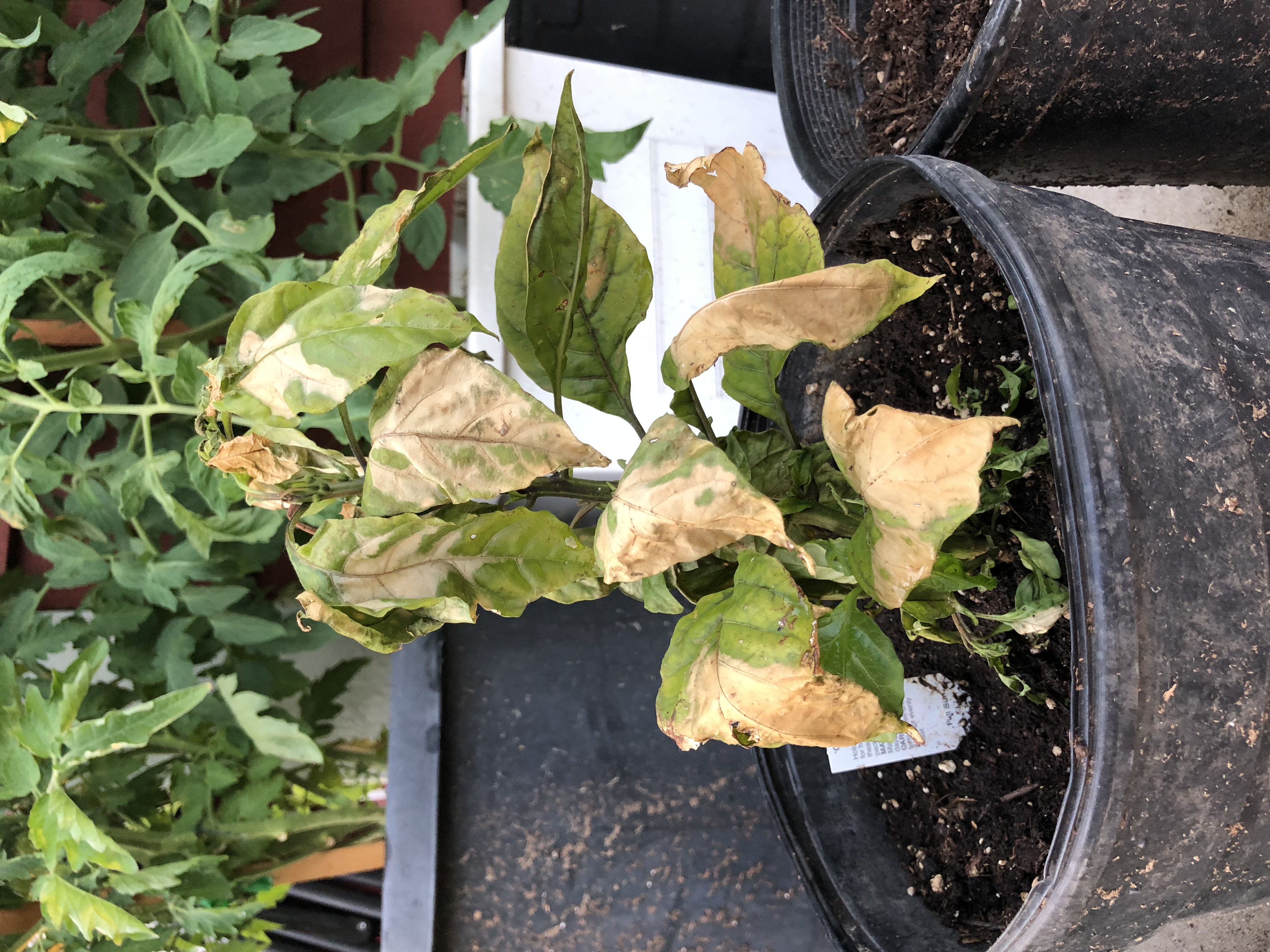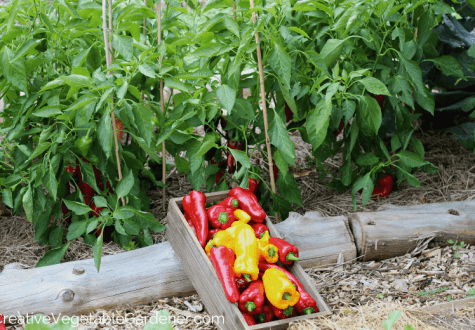Check Out the Best Fertilizers for Peppers and Enhance Your Yard's Return
Check Out the Best Fertilizers for Peppers and Enhance Your Yard's Return
Blog Article
Organic Vs. Synthetic Fertilizers: Which Is Best for Nurturing Healthy Pepper Plants?
In the realm of nurturing healthy pepper plants, the option in between natural and artificial fertilizers stands as a critical choice with significant effects. While both options objective to provide essential nutrients to sustain plant development, the nuances of their impact on the dirt, plant wellness, and the atmosphere stimulate a discussion that echoes throughout the horticulture neighborhood. Understanding the distinct advantages and potential mistakes of each fertilizer type is important for pepper cultivators seeking to optimize their returns while keeping an eco-conscious and sustainable technique.
Benefits of Organic Plant Foods
Organic plant foods use an environmentally-friendly and lasting method to beneficial pepper plants, providing vital nutrients without using synthetic chemicals. These natural fertilizers are originated from organic sources such as compost, manure, bone meal, and seaweed, advertising soil wellness and biodiversity. Unlike synthetic fertilizers, natural choices launch nutrients gradually, making sure a balanced and consistent supply for pepper plants to grow.
One significant advantage of organic plant foods is their capacity to boost dirt structure and water retention. By boosting soil wellness, natural fertilizers promote advantageous microbial activity, which assists in nutrient uptake by pepper plants. In addition, organic plant foods decrease the risk of chemical run-off, safeguarding water resources from pollution and guarding the atmosphere.
In addition, organic plant foods add to lasting dirt fertility by promoting the growth of useful soil organisms. These organisms help break down organic issue, releasing nutrients in a type that is conveniently available to pepper plants. best fertilizers for peppers. By cultivating a healthy dirt ecosystem, organic plant foods support lasting pepper growing practices that benefit both plants and the environment
Downsides of Artificial Plant Foods
Artificial plant foods, in contrast to their organic counterparts, present different negative aspects when made use of to nourish pepper plants, affecting both plant health and environmental sustainability. One significant disadvantage of artificial fertilizers is their propensity to leach nutrients from the dirt rapidly.
In addition, the overuse of artificial fertilizers can add to water air pollution. Excess fertilizers not absorbed by plants can clean away right into water bodies, causing eutrophication, where algae flowers deplete oxygen levels in the water, damaging water life. Moreover, synthetic fertilizers are usually originated from non-renewable sources, such as nonrenewable fuel sources, adding to carbon discharges and environmental deterioration throughout their production.
Nutrient Absorption Comparison
Efficient nutrient absorption plays an essential role in the overall health and growth of pepper plants. When comparing organic and artificial fertilizers in regards to nutrient absorption, natural fertilizers have the benefit of offering a more well balanced and slow-release source of nutrients (best fertilizers for peppers). Organic fertilizers include a selection of macro and micronutrients that are not just beneficial for the plants yet also advertise healthy and balanced soil microbial activity, which aids in nutrient uptake. On the various other hand, synthetic plant foods usually provide a fast release of nutrients, which can bring about seeping and drainage, leading to lower nutrient absorption prices by the plants.
Furthermore, natural plant foods enhance dirt framework and water retention capacity, enabling pepper plants to gain access to nutrients much more successfully. This better soil high quality facilitates root advancement, enabling better nutrient absorption. Synthetic fertilizers, although at first boosting plant development due to their high nutrient focus, may impede long-lasting nutrient absorption by degrading soil health over time.
Environmental Effect Considerations

On the other hand, artificial fertilizers, although frequently more quickly readily available and focused pop over to this site to plants, can have detrimental effects on the setting if not used appropriately (best fertilizers for peppers). Their manufacturing calls for high energy inputs, bring about greenhouse gas discharges and adding Get the facts to climate adjustment. The runoff of excess artificial plant foods can contaminate water resources, leading to eutrophication and harming marine ecological communities.
Finest Plant Food Practices for Peppers
To achieve this, it is important to follow ideal fertilizer techniques customized to the details requirements of pepper plants. One critical practice is to execute a soil test before using any type of plant foods.
Another essential technique is to fertilize pepper plants at the best time. Commonly, peppers benefit from obtaining fertilizer at growing and after that once again when they start to flower. Over-fertilizing can lead to nutrient inequalities and harm the plants, so it is important to adhere to advised application rates.
In addition, choosing a well balanced plant food with an NPK ratio that fits pepper plants' needs is fundamental. Organic fertilizers, such as compost or manure, can be exceptional selections as they launch nutrients slowly and enhance soil structure with time. Nevertheless, artificial fertilizers can offer a fast nutrient boost when needed. Ultimately, integrating organic and artificial fertilizers judiciously can help nurture healthy pepper plants while reducing ecological influence.
Final Thought

Organic plant foods provide an environmentally-friendly and lasting strategy to beneficial pepper plants, supplying vital nutrients without the usage of synthetic chemicals. Unlike artificial fertilizers, organic alternatives release nutrients slowly, ensuring a consistent and well balanced supply for pepper plants to grow.
Synthetic plant foods, in comparison to their natural counterparts, posture different disadvantages when utilized to nourish pepper plants, influencing both plant wellness and environmental sustainability. When contrasting artificial blog here and natural fertilizers in terms of nutrient absorption, natural fertilizers have the benefit of supplying an extra balanced and slow-release source of nutrients.Moreover, organic fertilizers enhance soil structure and water retention capacity, permitting pepper plants to accessibility nutrients much more effectively.
Report this page